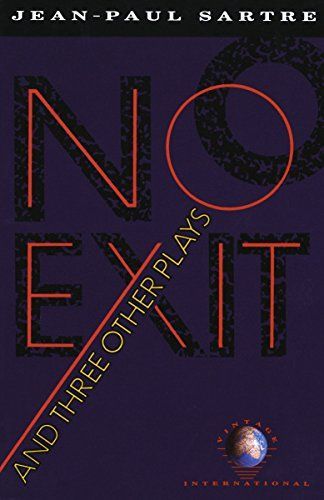
No Exit and Three Other Plays
Four seminal plays by one of the greatest philosophers of the twentieth century. An existential portrayal of Hell in Sartre's best-known play, as well as three other brilliant, thought-provoking works: the reworking of the Electra-Orestes story, the conflict of a young intellectual torn between theory and conflict, and an arresting attack on American racism.
Reviews
Brianna Best@bookingitwithbri
Bella Benevides@bellasbooks5
Sonia Grgas@sg911911
Iskra@iskra3
Jyc@joeesuuu
John Lopiano Jr.@jlopiano44
Misha@yagudin
B.H. Pitt@bhpitt
Molly Witt@mollysmilesreads
Giovanni Garcia-Fenech @giovannigf
Andrea Ordoñez @andreaovs
Athena Eloy@athenaeloy
Cem Pekdogru@pekdogru
Ashley Dotterweich@ashdott
Shea Newton@shnewto
Anna Talbot@sontagspdf
Pierre@pierrot
Vera@yuyuv
Bud Valley@bud
Jen Taylor@jen_n_taylor
I.m. ruzz@ruzz